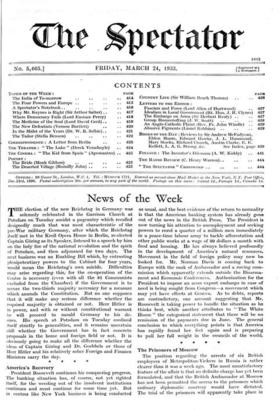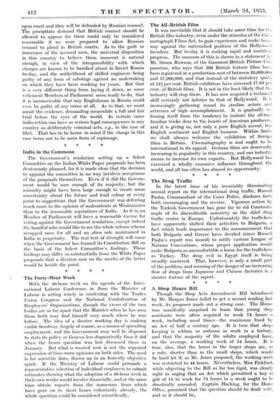The Prisoners of Moscow The position regarding the arrests of
six British employees of Metropolitan-Vickers in Russia is rather clearer than it was a week ago. The most unsatisfactory feature of the affair is that no definite charge has yet been formulated, 'and that the British Ambassador at Moscow has not been permitted the access to the prisoners which ordinary diplomatic courtesy would have dictated. The trial of the prisoners will apparently take place in open court and they will be defended by Russian counsel. The precipitate demand that British' counsel should be allowed to appear for them could, only be considered reasonable if we were prepared to allow Russian counsel to plead in British courts. As to the guilt or innocence of the accused men, the universal disposition in this country to believe them innocent is • natural enough, in view of the irresponsibility with which charges are known to be bandied about in Soviet Russia to-day, and the unlikelihood of skilled engineers being guilty of any form of sabotage against an undertaking on which they have been working for years. But that is a very different thing from laying it down, as some vehement Members of Parliament seem ready to do, that it is inconceivable that any Englishman in Russia could ever be guilty of any crime at all. As to that, we must await the evidence, demanding meanwhile a full and fair trial before the eyes of the world. In certain cases indiscretion can have as serious legal consequences in any country as deliberately criminal acts, e.g., in the case of libel. That has to be borne in mind if the charge in this case turns out to be some form of espionage.
* *







































